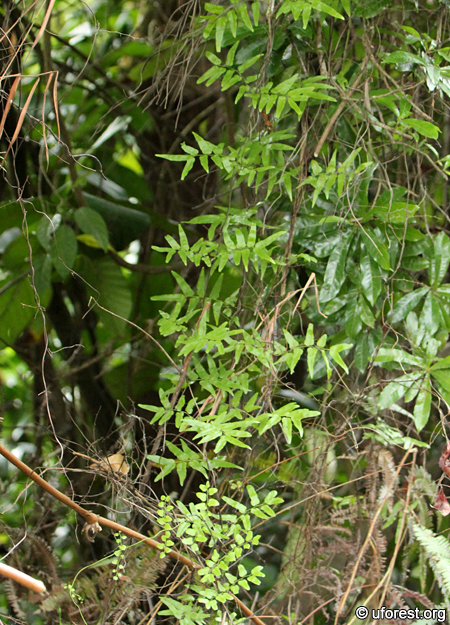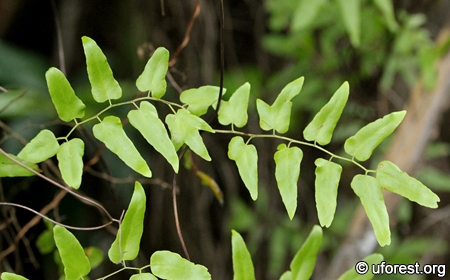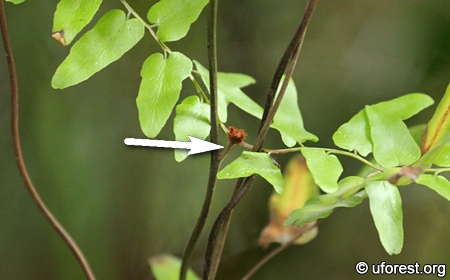Lygodium microphyllum (Cav.) R. Br.
| Etymology | Genus | From Greek lygodes, referring to its twisting shoots |
|---|---|---|
| Species | Small leaves | |
| Family | Schizaeaceae | |
| Synonyms | Lygodium scandens (L.) Sw. | |
| Common Names | Common Lygodium, Old World Climbing Fern | |
| Status | Native: Least Concern | |
| Form | Climber | |
| Native Distribution | Africa to China, Japan, Malesia, Australia and Pacific Islands | |
Diagnostics:
Lygodium microphyllum is a very common climbing fern in open areas. The fronds are branched in pairs, which holds leaflets of varying forms, though usually lance-shaped.
It is very similar to another congener, Lygodium flexuosum, with the differentiating factor being the prominently elongated rachis of L. microphyllum.
Interesting Facts:
The Common Lygodium is considered as an invasive weed in the US, where it was first observed to escape from ornamental cultivation in Florida at 1965 (Texas Invasive Species Institute, 2014).

Climbing habit of the Common Lygodium.

Leaflets, with varying shapes.

Rachis, or the stalk of the frond, is pronounced.

Fertile frond with leaflets that are highly lobed.
References
Texas Invasive Species Institute (2014) Old World Climbing Fern. http://www.tsusinvasives.org. Accessed on 25-Dec-2017.
Author: Siyang
Posted: 2017-12-25 / Modified: 2018-04-22